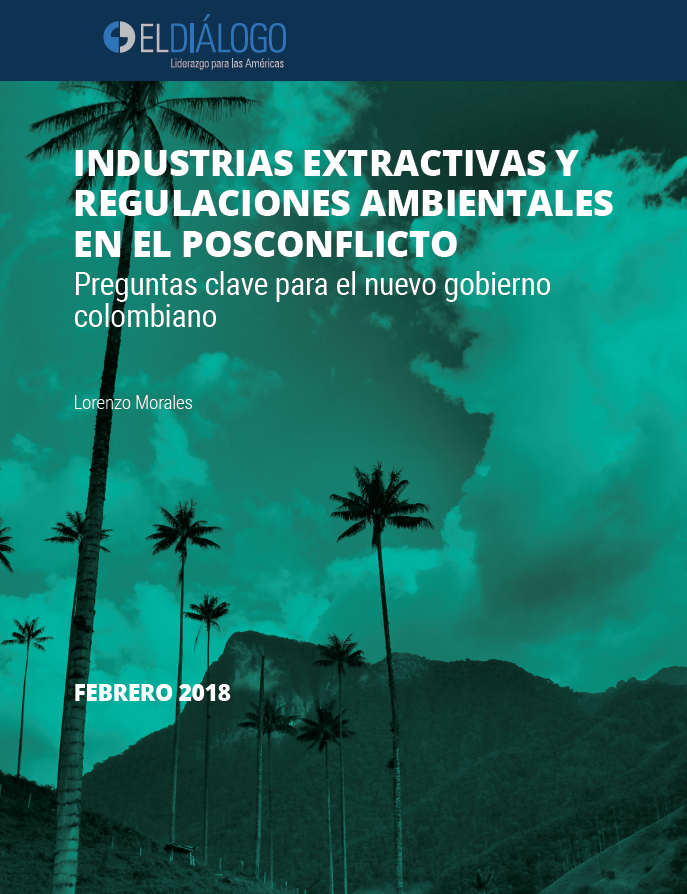As Mining Sector Takes Off, Colombia Must Take Care
Colombia is in the midst of a mining boom. The challenge for President Santos is to capitalize on the sector’s promise.
This post is also available in: Español
In the wake of the peace accords signed with the FARC in 2016, Colombia must pursue new strategies to ensure sustainable development of natural resources. Oil and mining are important sectors of the economy, making a significant fiscal contribution to cover the costs of implementing the peace deal. Improved security could even encourage companies to expand extractives activity in former conflict zones.
Yet there is a lack of consensus about how to manage environmental concerns related to these sectors. Inconsistent policies and inefficient regulation have slowed oil and mining production, while many communities are strongly opposed to extractive industries on environmental grounds. The peace negotiations have further emboldened some communities to oppose oil and mining projects.
In this context, the next president will be tasked with outlining a fresh approach to environmental regulation of extractive industries in the post-conflict period.
A new report by the Energy, Climate Change, and Extractive Industries Program at the Inter-American Dialogue, Extractive Industries and Environmental Regulation in Post-Conflict Colombia: Key Questions for the New Government analyzes the challenges to environmentally and socially sustainable development of the oil and mining sectors in Colombia and raises important questions for policymakers, such as where extractive industries should be permitted to operate, who should be responsible for oversight and how to make operations more environmentally sustainable:
The report is authored by Lorenzo Morales, a journalist and professor at the Center for Journalism Studies at the Universidad de los Andes.
The report was made possible by support from the Ford Foundation.
Colombia is in the midst of a mining boom. The challenge for President Santos is to capitalize on the sector’s promise.
Will Cuba be able to safely regulate its oil industry?
Despite its prodigious petroleum reserves, many countries in Latin America are experiencing declining production. What explains the paradox?

